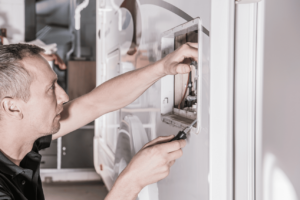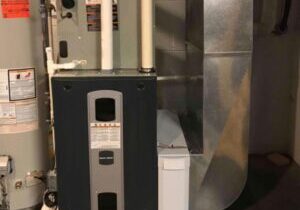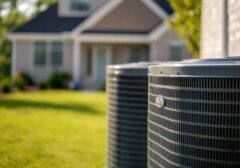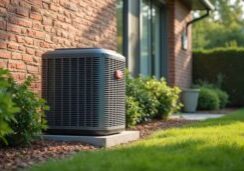Should I Replace Or Repair My Heating System?
A broken heating system is something that every homeowner wants to avoid, especially in the colder months. However, just like any other equipment, future problems will occur. The key lies in what steps you take to prevent it from becoming a bigger problem and causing you to spend more money.
Knowing what to do with your broken heating system can save you time and money. For example, depending on the problem, sometimes HVAC replacement is a cheaper choice than a repair, and vice versa.
Read on to learn more about the different indicators to help you decide whether your HVAC needs a replacement or just a repair.
Indicators of Needing a Replacement
Age
An HVAC system can last 10-25 years, depending on how well you take care of it. Nevertheless, as your home’s HVAC system is aging, many critical components will start eroding. And this can significantly affect its performance and, more importantly, compromise your safety.
If your heating is close to its retirement age and you’re seeing its efficiency decreasing and your utility cost increasing, then a replacement is your option.
Higher Energy Bills
If you notice a sudden spike in your energy bills, this is a sign that your system isn’t working as it should be anymore. While a repair can fix some efficiency issues, an older heating system will need more significant fixes to keep its effectiveness at bay. Therefore, in this case, a replacement would be a better investment.
Frequent Repairs
As you can imagine, repairing your HVAC system over and over again will cost you a lot of money. While it’s normal to have your system checked regularly, returning for repair a few times a year will certainly cost you more than buying a new heating unit.
Indicators of Needing a Repair
Unusual Noises
Strange noises are the most obvious sign of something wrong with your heating system. Sounds can vary from creaking to rattling to banging. Each noise indicates different problems within your system, but the good news is a professional technician can usually fix it. Therefore, it’s paramount that you contact your local HVAC technicians immediately as soon as you notice any of these unusual noises.
Dusty Home
Dust, dirt, and other particles can be a nuisance for people in your home. If left unchecked, it can decrease your home’s indoor air quality and poses many health issues to your loved ones. This can be easily fixed by cleaning or changing the system’s ducts and air filters.
Yellow Burner Flame
When your furnace is working as it should be, the color of the pilot light should be blue. Other colors, such as yellow, orange, red, or green, indicate that the furnace isn’t in good condition. It’s critical that you have your furnace checked immediately because these colors can suggest that there might be a gas leak or other harmful substances.
Constantly Adjusting Thermostat
Getting the right comfortable temperature in the rooms is vital, especially on cold winter days. If you have trouble adjusting your thermostat to get the desired temperature, the problem might lie in your furnace. This can indicate that the furnace isn’t doing its job in distributing the heat across the rooms. Contact your HVAC and ducting company and have them look at it.
Tips For Making the Right HVAC Decision For Your Home
The best way to minimize problems from a broken heating system is to have it checked regularly by a professional. Regular maintenance will help keep up the system’s performance, prolong its life expectancy, and save you money.
It’s also good to know what type of heating system you have to understand where the problem might come from.
It’s recommended to have your system checked at least once a year, ideally before crucial months when you need your HVAC the most, such as winter and summer. Furthermore, although some repairs can be done by yourself, the HVAC system is delicate and, therefore, should be handled by a professional technician for safety reasons and to prevent further damage.
End Note
A broken down heating system is no fun, but it’ll at some point happen to all of us as a homeowner. Whether to repair or replace is greatly influenced by the cost of each step but should also depend on how significant the problem is because a broken HVAC is not just costly but can greatly impact your and your family’s health.
If you need further assistance with the HVAC system, be sure to contact us. Our professional team is ready to help you ensure you have a well-working HVAC system for your beloved home.










